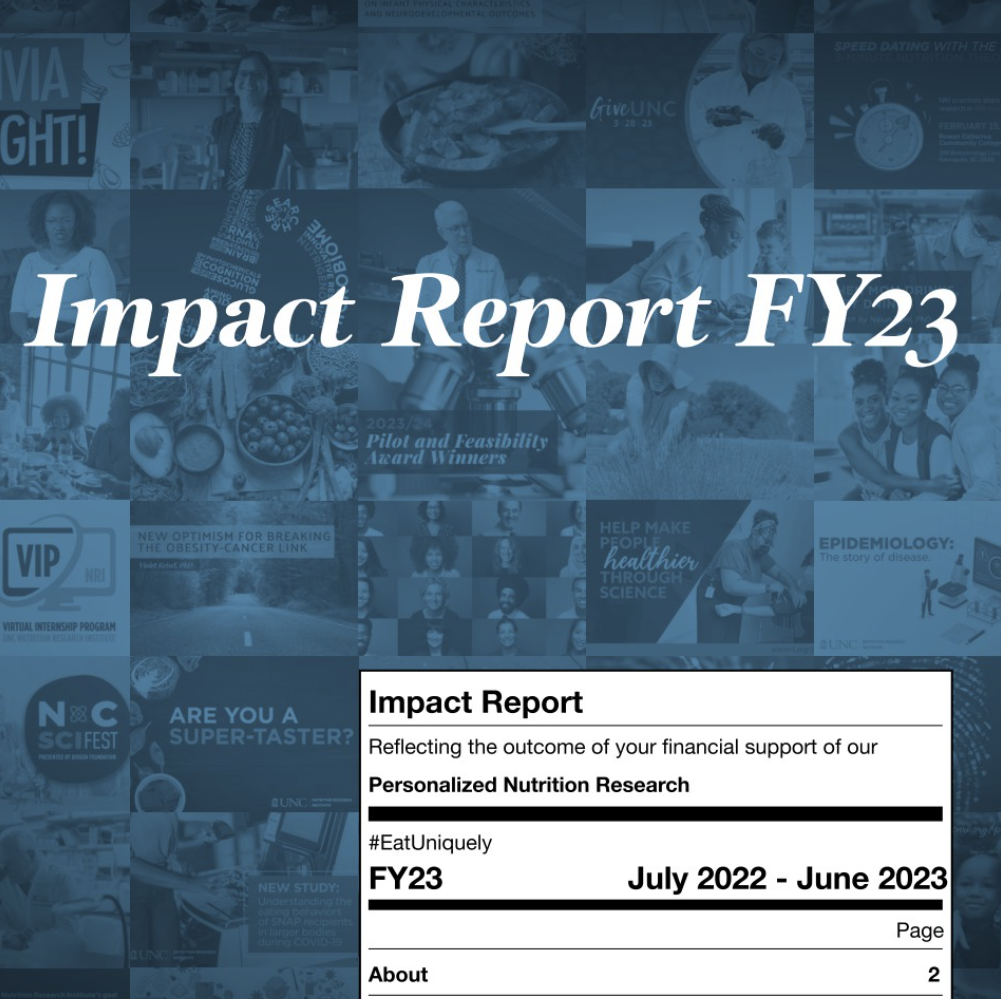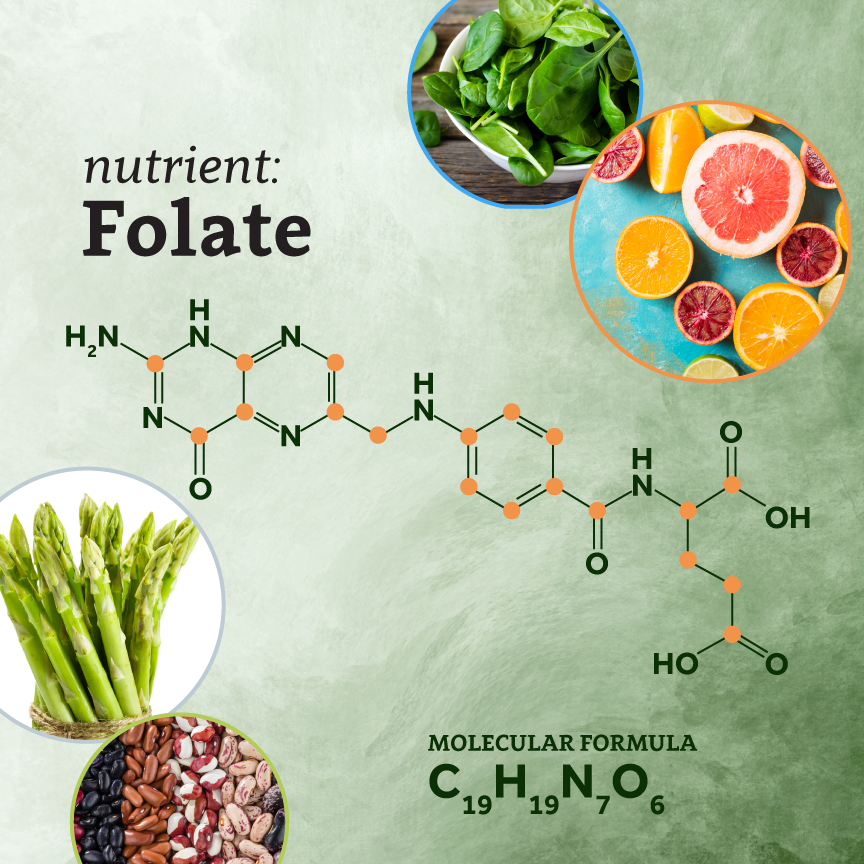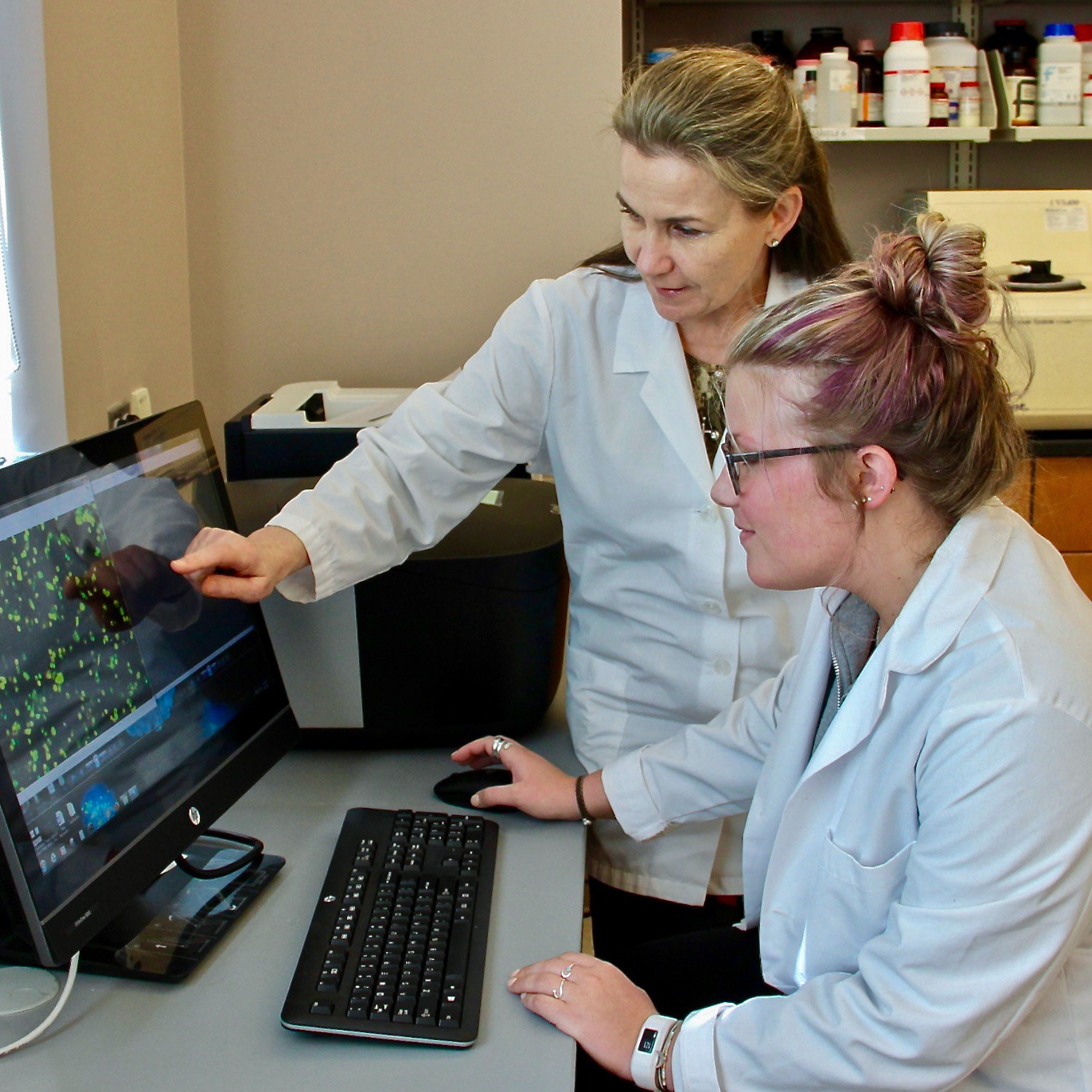Natalia Krupenko, PhD
Associate Professor of Nutrition
natalia_krupenko@unc.edu
704-250-5054

Madeline Hall Childress
Graduate Student, N. Krupenko Lab
Madeline joined the NRI in March 2019 and began her doctoral studies in fall 2020. She completed her undergraduate program at the University of Alabama, where she graduated in 2018 with a major in Biology and minors in Chemistry and Spanish. Madeline works with Dr. Natalia Krupenko to research the role of folate in promoting human healthy and preventing disease.
Virtual Internship Program is accepting applications
Impact Report FY23
Folate is Essential, But Don’t Overdo It
Folate is a water-soluble vitamin, naturally found in many foods. Folate helps to make DNA and RNA and is involved in metabolism of amino acids. It is needed to produce healthy red blood cells and plays a key role in removing homocysteine, a molecule that can exert...
NRI expertise makes news
The UNC Nutrition Research Institute is an internationally recognized center that conducts innovative basic and translational science studying how individual differences in requirements and responses to diet affect our nutritional needs. Using cutting-edge tools in...





